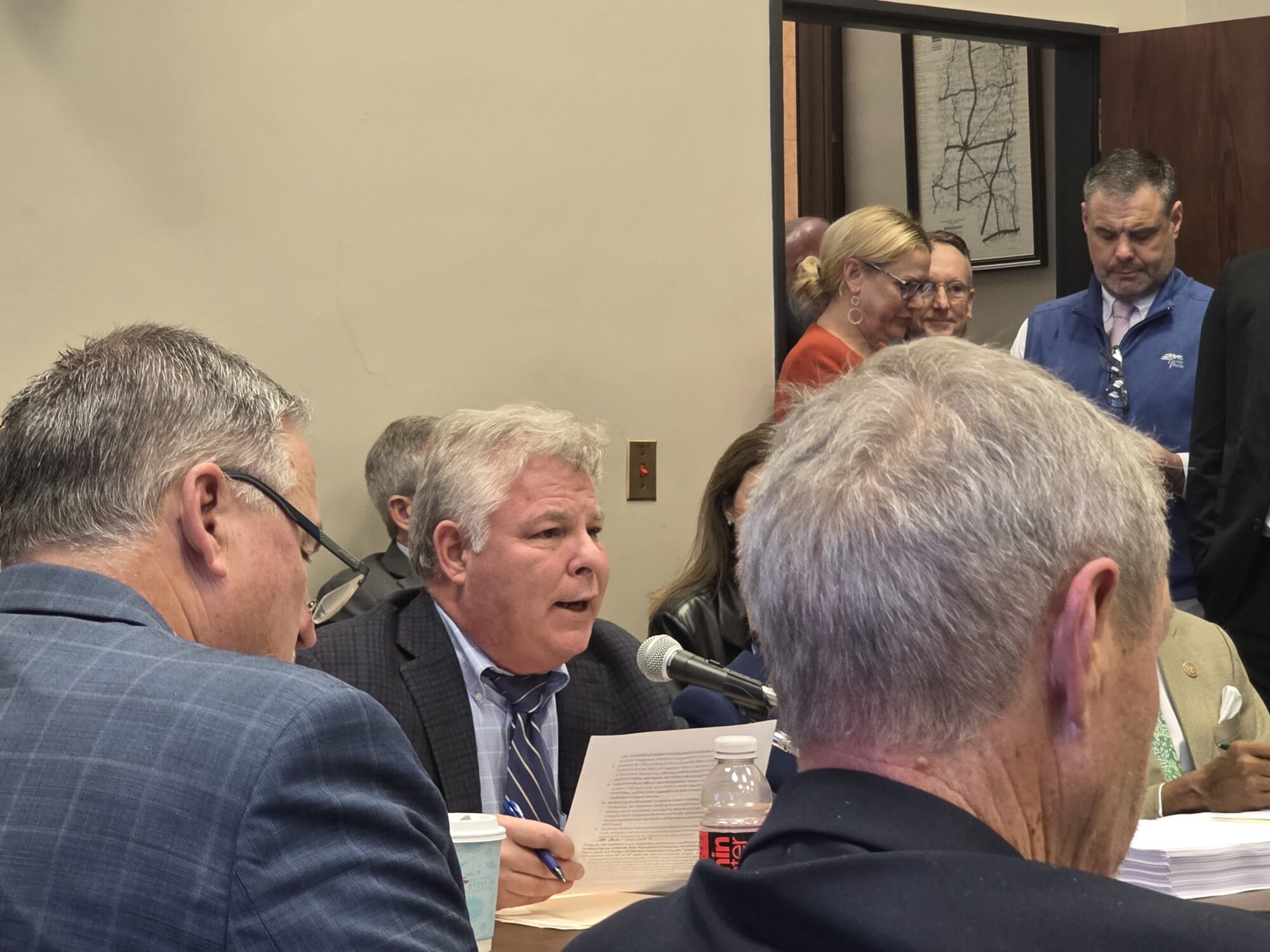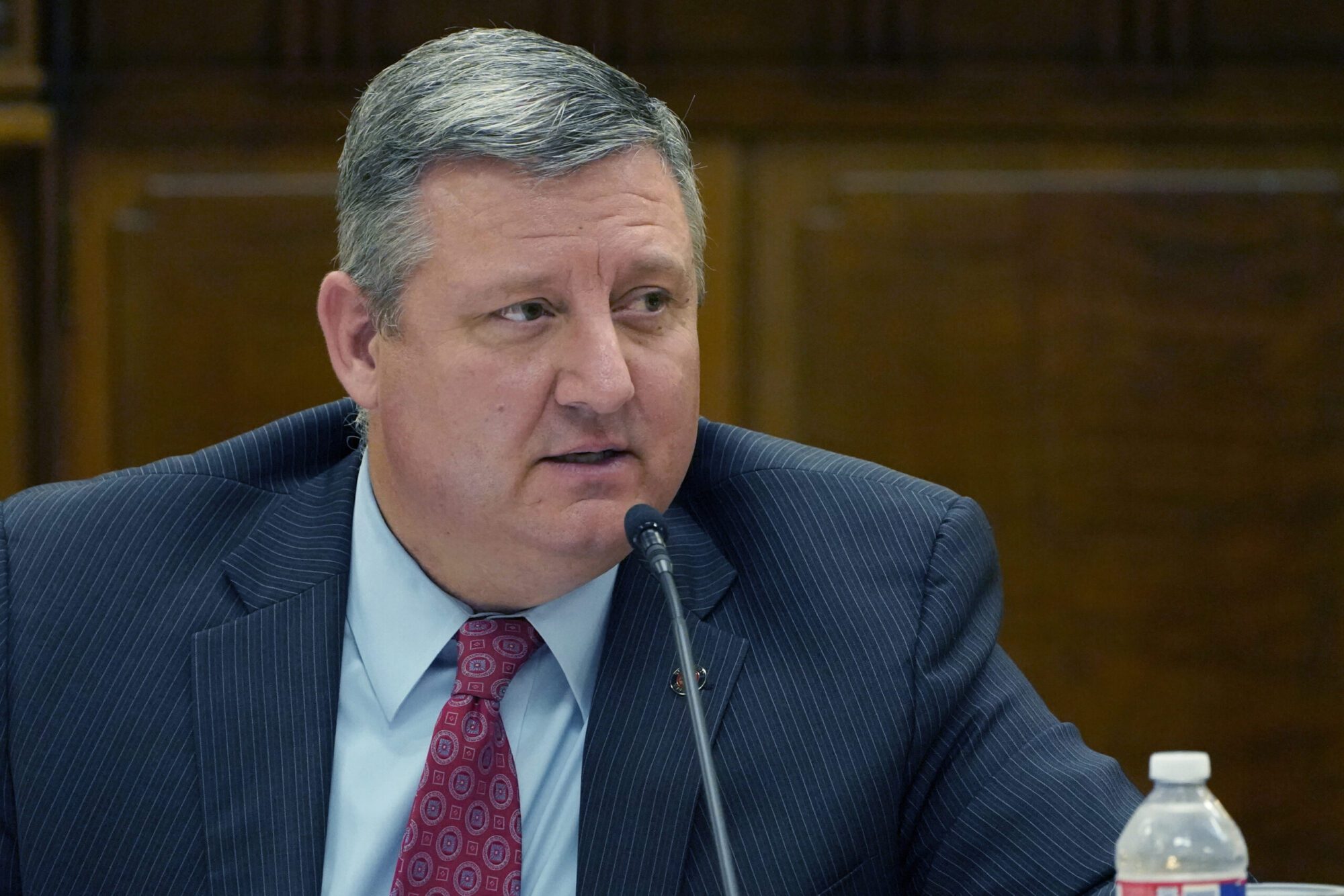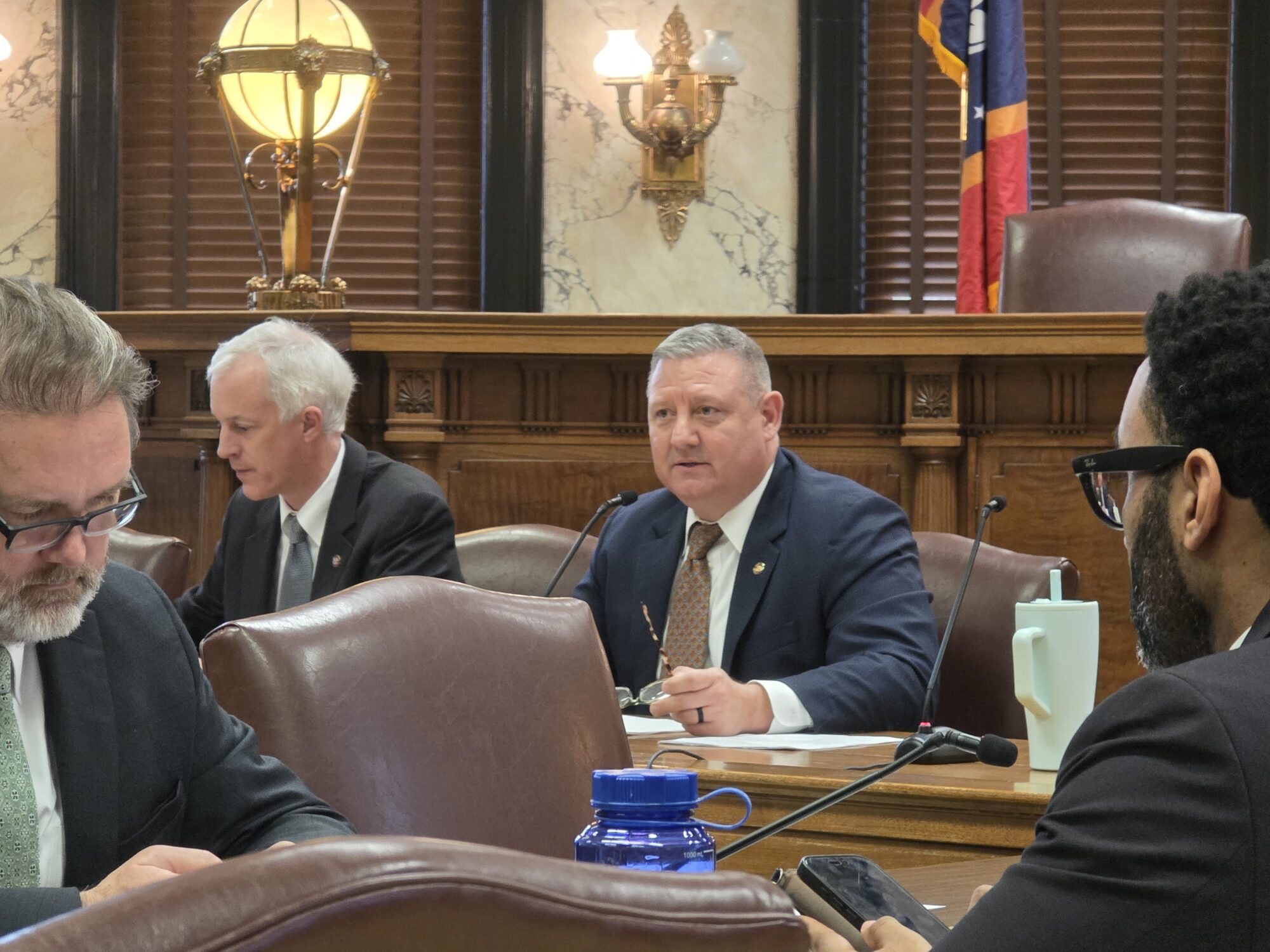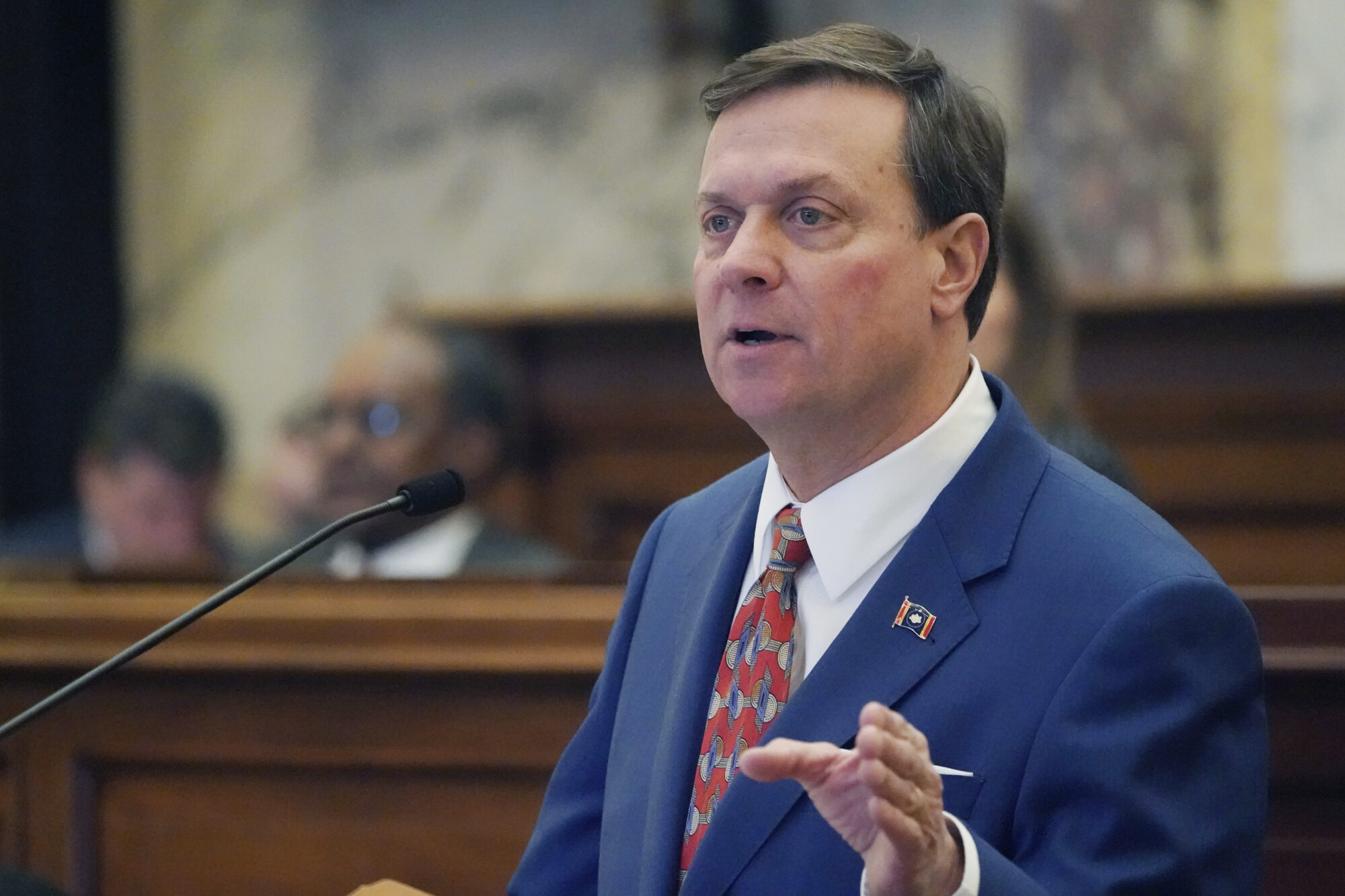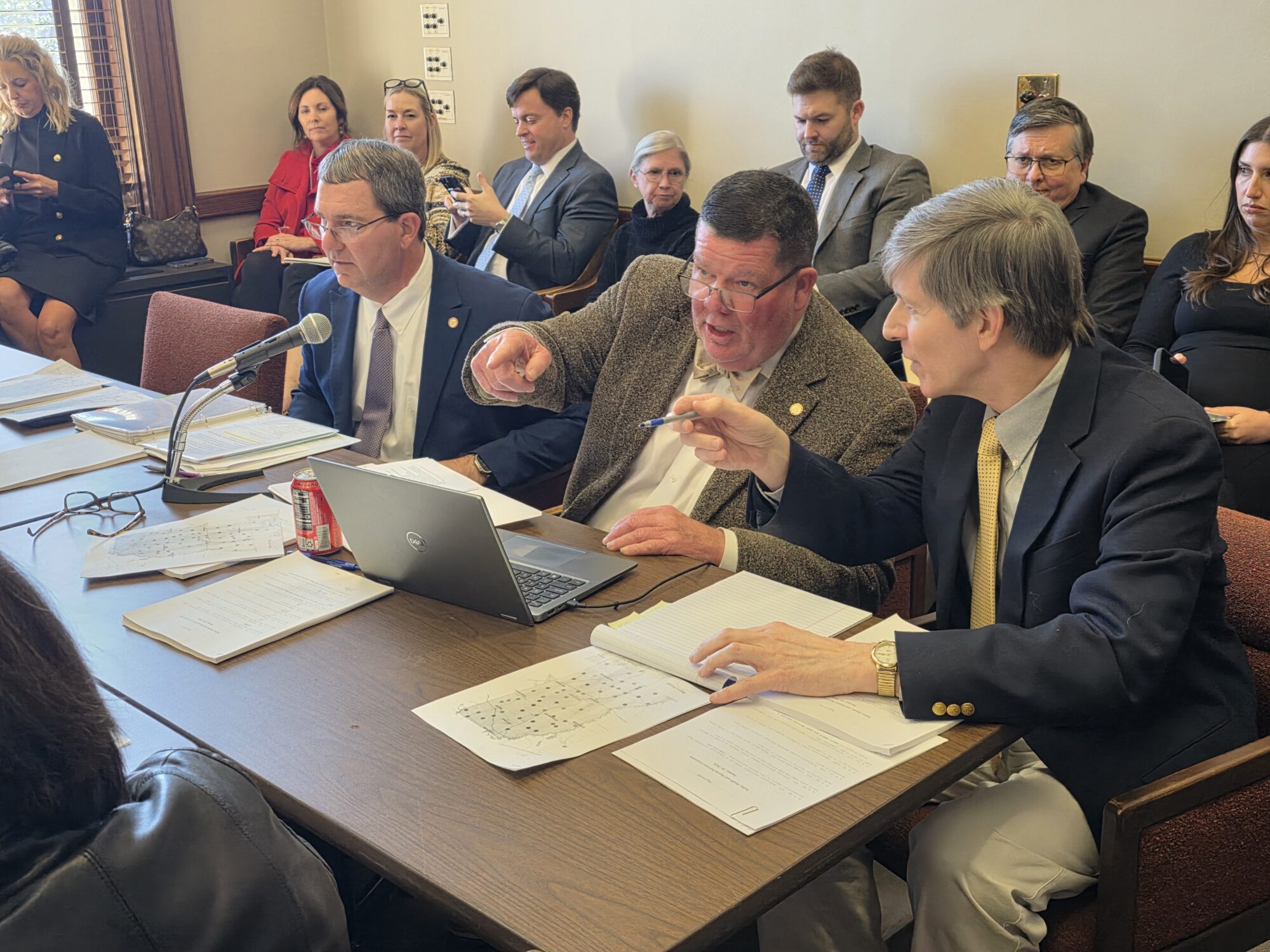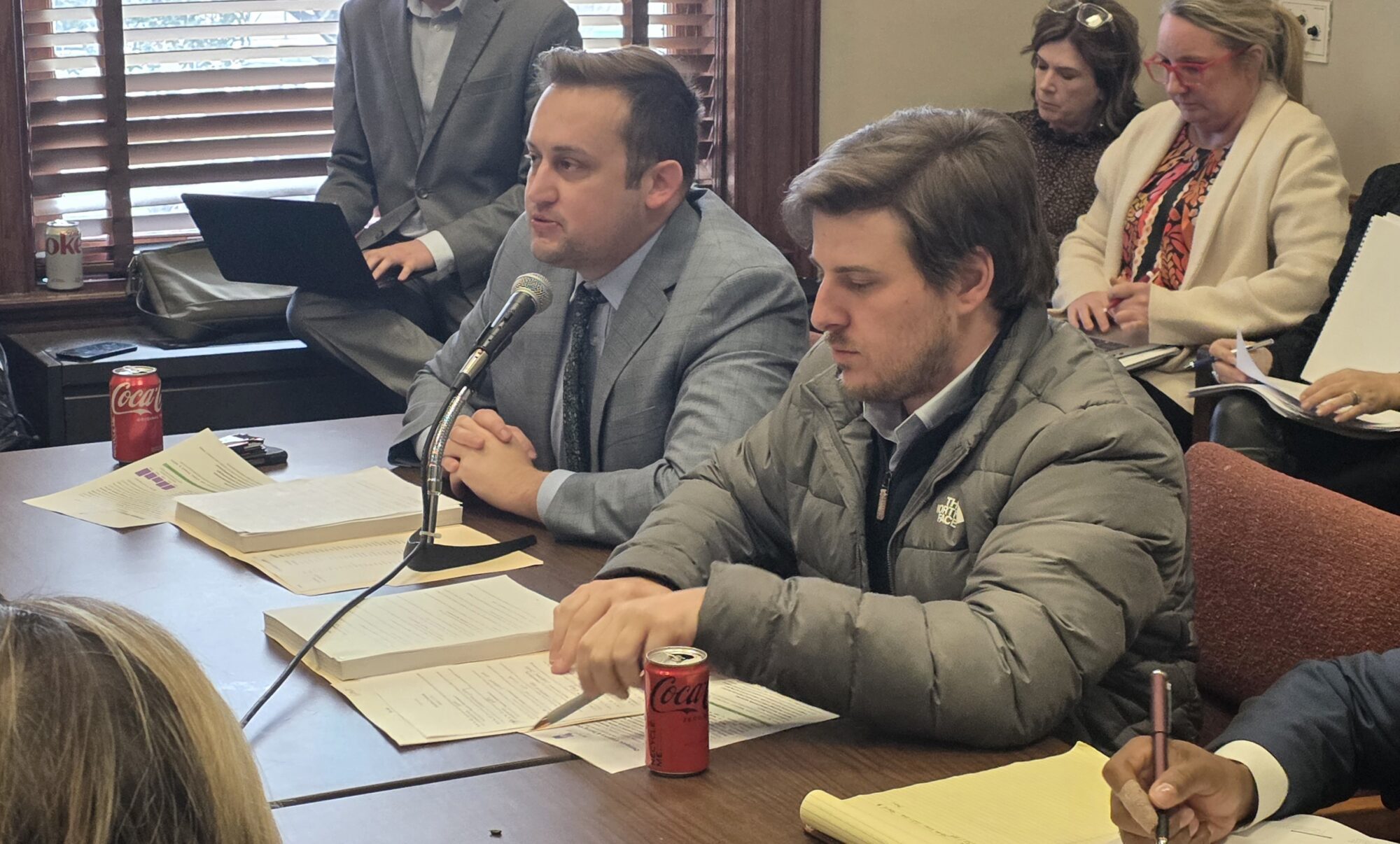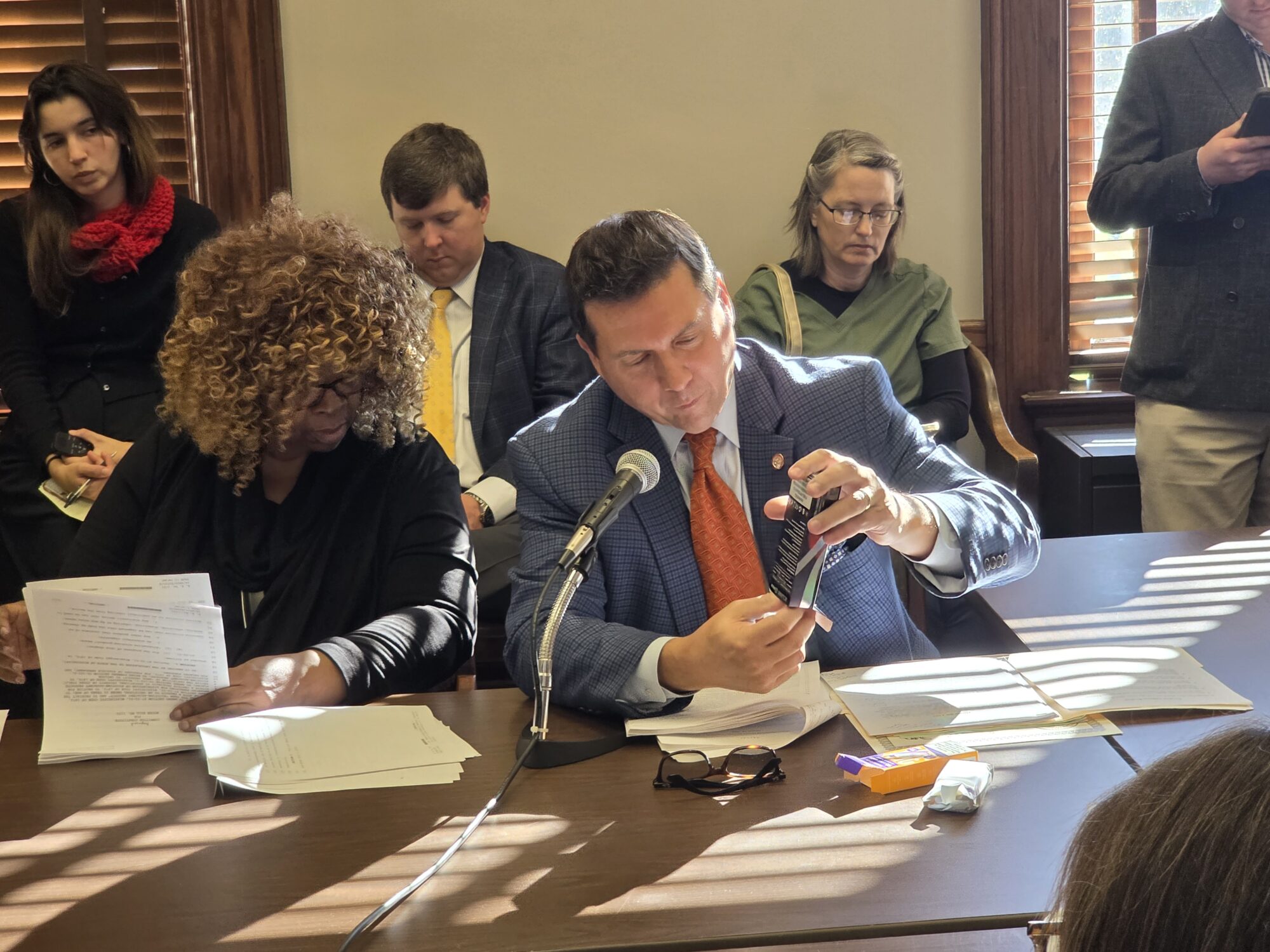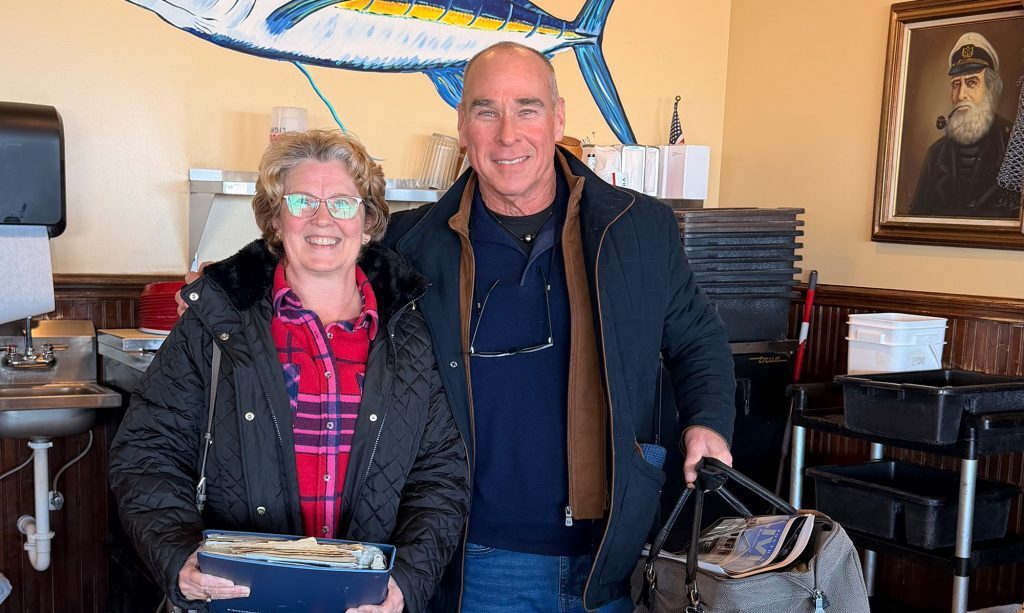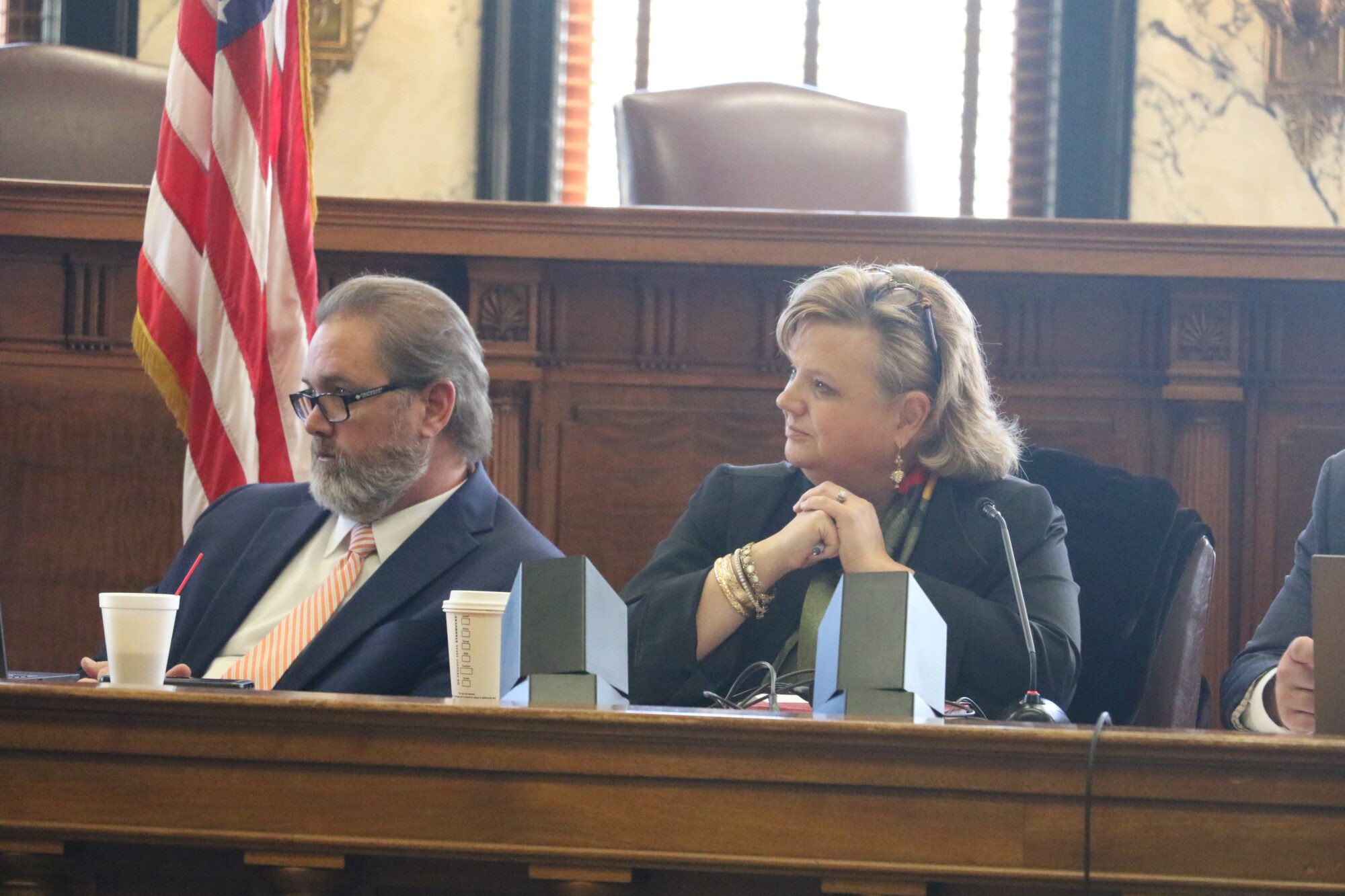
From Left, State Senators Scott Delano (R) and Nicole Boyd (R). (Photo by Jeremy Pittari | Magnolia Tribune)
- The Senate legislation has less restrictions than a similar bill that passed in the House earlier this week.
The Senate kept Lt. Governor Delbert Hosemann’s promise of offering free community college to Mississippians alive this week by passing SB 2527 off the floor prior to deadline day.
Wednesday afternoon, Senate Universities and Colleges Chair Nicole Boyd (R) presented legislation, titled the “Mississippi Resident Promise Program.”
If passed and signed into law by the Governor, the program would allow Mississippi’s high school graduates or those who complete the high school equivalency program to apply to what’s termed a “the last dollar program.”
Applicants will be required to apply for all currently established forms of financial aid before the state funding would be accessible.
“This program is basically what we have often referred to as ‘the last dollar program,'” Boyd described. “Students, after they apply for their FASFA or Mississippi assistance money, they are allowed then to apply for these last dollar programs.”
Boyd said the applications, along with the program in general, would be administered by the Mississippi Post Secondary Educational Financial Assistance Board.
In order to qualify, the applicant must be a Mississippi resident, a high school graduate with a minimum 2.5 GPA, and be attending a Mississippi community college within 12 months of graduation.
Eligibility also requires the student to attend the community college as a full-time student and show continued progress toward completion of their intended degree or certification.
There are exceptions for not maintaining full-time enrollment, such as “student participation in a cooperative program, internship program, or foreign study program.” Failure to maintain full-time enrollment without an approved exception will make that student ineligible for the program in subsequent semesters.
Qualified students would only be eligible to participate in the program for a maximum of four semesters, or the time it takes to complete one associate degree program, according to the bill.
Senator Boyd told her colleagues that under the program, students can seek an academic degree, career or technical trade certificate, or participate in an allied health program, adding that 35 other states currently offer similar programs.
According to data from eight of the state’s 15 community colleges that already have similar programs in place, it is estimated that the cost would be roughly $1,800 per student per year, with about 6,800 estimated students currently participating.
The bill passed the Senate by a vote of 47 to 3, with Senators John Polk (R), Kathy Chism (R) and Chris Johnson (R) voting against the legislation.
READ MORE: Mississippi House aims to address workforce needs with tuition-free community college
The House of Representatives passed a similar bill, HB 1556, on Tuesday, called the “Mississippi Connecting Career and Technical Education Employability Program.” While akin to the Senate’s program, the House’s proposal is limited to those students seeking a degree or certificate in a high-demand career path. Those applicable career paths would vary by region of the state since each region has its own workforce ecosystem needs.
The two chambers will now swap measures and consider the other’s legislation as the session continues.

